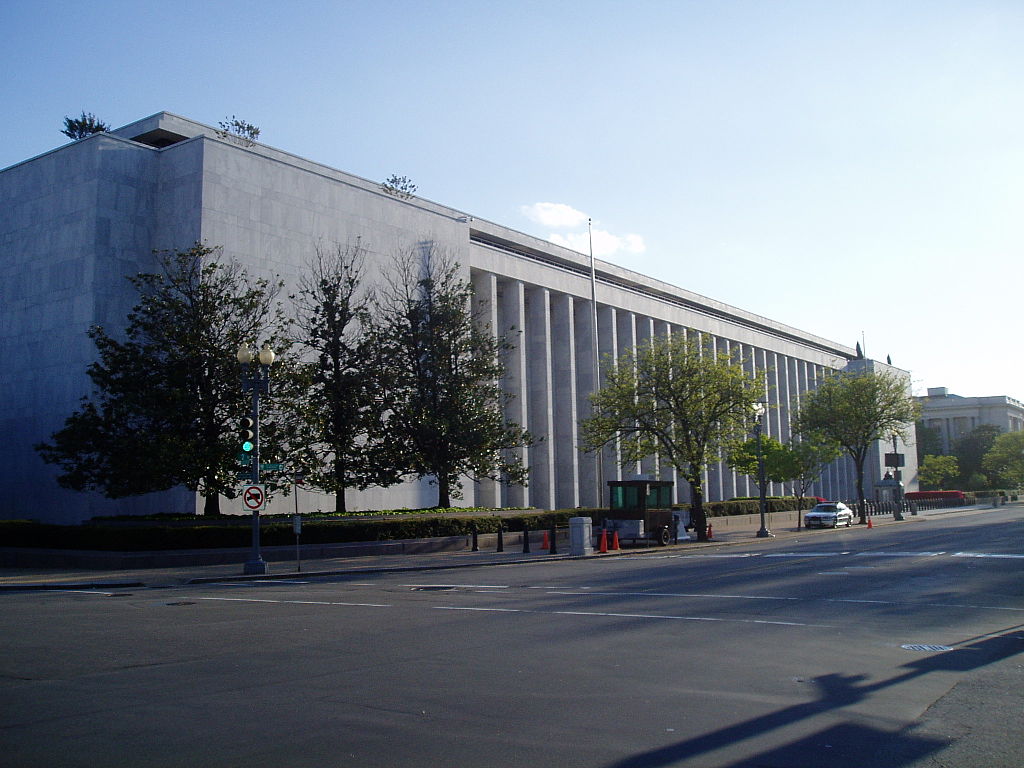 On June 3, the U.S. Copyright Office published a Federal Register notice regarding a study it is initiating to “evaluate the degree to which copyright owners are experiencing infringement by state entities without adequate remedies under state law, as well as the extent to which such infringements appear to be based on intentional or reckless conduct.” The Office requested public input in the form of written comments on or before August 3, 2020 to assist the Office in preparing a report to Congress on the study.
On June 3, the U.S. Copyright Office published a Federal Register notice regarding a study it is initiating to “evaluate the degree to which copyright owners are experiencing infringement by state entities without adequate remedies under state law, as well as the extent to which such infringements appear to be based on intentional or reckless conduct.” The Office requested public input in the form of written comments on or before August 3, 2020 to assist the Office in preparing a report to Congress on the study.
The doctrine of sovereign immunity sets forth that “a federal court generally may not hear a suit brought by any person against a nonconsenting State.” However, in November 1990, the Copyright Remedy Clarification Act (CRCA) amended the Copyright Act to expressly provide that states are not immune from suit for copyright infringement. Earlier this year the Supreme court, in Allen v. Cooper, held that “Congress lacked authority to abrogate the States’ immunity from copyright infringement suits in the CRCA”, and, therefore, CRCA lacked a valid constitutional basis. Thus, there has been concern from copyright owners that they may not be able to seek the remedies provided by the Copyright Act if they suffer infringement by state entities.
On April 28, 2020, Senators Thom Tillis (R-NC) and Patrick Leahy (D-VT) sent a letter to the Office noting that Allen v. Cooper has ‘‘created a situation in which copyright owners are without remedy if a State infringes their copyright and claims State sovereign immunity.” The Senators also expressed concern “about the impact this may have on American creators and innovators.’’ The study announced in the present Federal Register Notice is in response to the Senators request for the Office to study “the extent to which copyright owners are experiencing infringements by state entities without adequate remedies under state law”, with particular focus on whether such infringements are “intentional or based on reckless conduct.”
The Federal Register Notice requested that individuals submitting comments explain their interest in the study and provide information on some or all of the following subjects: 1) specific instances of infringement by a state or state entity, 2) the extent to which state sovereign immunity affects licensing or sale of copies of copyrighted works to state entities, 3) remedies available to copyright owners who are experiencing infringement by a state, 4) metrics that can be used by Congress to determine if a state’s infringing acts are common or infrequent, 5) whether the instances of infringement by states has been on the rise in recent years, 6) information regarding how different states handle claims of infringement, and 7) identification of any other pertinent issues that the Office should consider. Specific instructions for submitting comments are available on the Copyright Office website.

![[IPWatchdog Logo]](https://ipwatchdog.com/wp-content/themes/IPWatchdog%20-%202023/assets/images/temp/logo-small@2x.png)

![[Advertisement]](https://ipwatchdog.com/wp-content/uploads/2024/04/UnitedLex-May-2-2024-sidebar-700x500-1.jpg)
![[Advertisement]](https://ipwatchdog.com/wp-content/uploads/2024/04/Artificial-Intelligence-2024-REPLAY-sidebar-700x500-corrected.jpg)
![[Advertisement]](https://ipwatchdog.com/wp-content/uploads/2024/04/Patent-Litigation-Masters-2024-sidebar-700x500-1.jpg)

![[Advertisement]](https://ipwatchdog.com/wp-content/uploads/2021/12/WEBINAR-336-x-280-px.png)
![[Advertisement]](https://ipwatchdog.com/wp-content/uploads/2021/12/2021-Patent-Practice-on-Demand-recorded-Feb-2021-336-x-280.jpg)
![[Advertisement]](https://ipwatchdog.com/wp-content/uploads/2021/12/Ad-4-The-Invent-Patent-System™.png)






Join the Discussion
2 comments so far.
anastasiapolglaz
September 2, 2020 02:16 pmEnjoyed looking through this, very good stuff, appreciate it.
Anon
June 5, 2020 01:03 pmAs I noted at the time, the Allen v Cooper decision literally opened a free-for-all by ALL State actors (including — especially — State-employed teachers.
I did get some (minor) pushback, but Sen. Tillis’s words vouch for the position that I advanced.
However, what his call fails to recognize is that this new realization (given the pandemic) is LIKELY not to have yet reached even a remote portion of its potential impact.